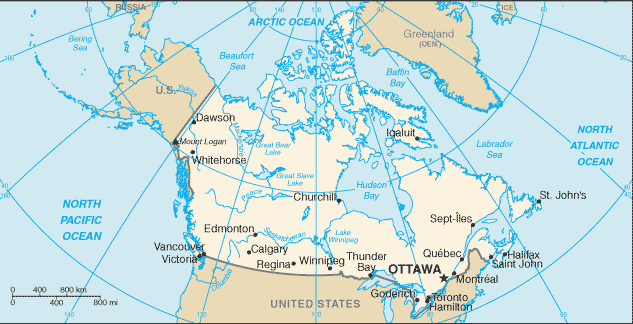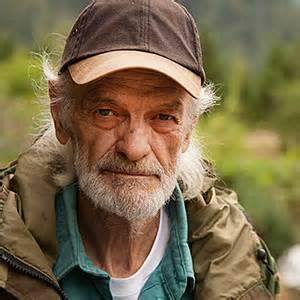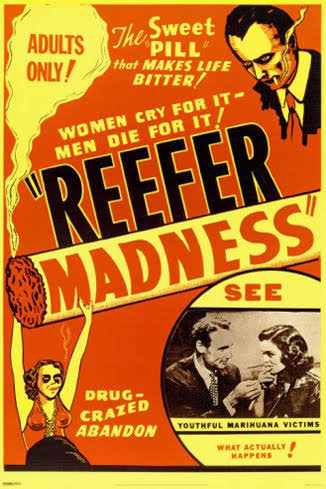 Amid a bloody prison uprising in Mississippi, hip-hop superstar Jay Z has launched suit against state authorities on behalf of inmates at the violence-plagued penitentiary. Mississippi has some of the harshest cannabis laws in the country, and pot convictions are big factor contributing to the dire crisis of overcrowding and brutality in the state's lock-ups.
Amid a bloody prison uprising in Mississippi, hip-hop superstar Jay Z has launched suit against state authorities on behalf of inmates at the violence-plagued penitentiary. Mississippi has some of the harshest cannabis laws in the country, and pot convictions are big factor contributing to the dire crisis of overcrowding and brutality in the state's lock-ups.

 A ground-breaking British Columbia dispensary that has been operating for 20 years won a request for an "exemption" from the licensing requirements of Canada's Cannabis Act by vote of the Victoria city council. This municipal action is a challenge to the national crackdown on Canda's "gray-market" dispensaries.
A ground-breaking British Columbia dispensary that has been operating for 20 years won a request for an "exemption" from the licensing requirements of Canada's Cannabis Act by vote of the Victoria city council. This municipal action is a challenge to the national crackdown on Canda's "gray-market" dispensaries. Martin Luther King Jr never spoke about cannabis, but his life and works have much to say about the fight for legalization, and against the "New Jim Crow" of the war on drugs.
Martin Luther King Jr never spoke about cannabis, but his life and works have much to say about the fight for legalization, and against the "New Jim Crow" of the war on drugs.  Growing numbers around the United States and the world are using cannabis to treat a wide spectrum of medical conditions, and legal space is widening for them to do so. So it's a particular irony that hospitals as a rule bar cannabis from their premises. More voices in the medical industry are now grappling with this dilemma.
Growing numbers around the United States and the world are using cannabis to treat a wide spectrum of medical conditions, and legal space is widening for them to do so. So it's a particular irony that hospitals as a rule bar cannabis from their premises. More voices in the medical industry are now grappling with this dilemma. The Emerald Triangle mourns the passing of BE Smith, the legendary Trinity County grower who did time in federal prison for openly cultivating cannabis under California's medical marijuana law—throwing down the proverbial gauntlet to Washington DC from his mountain homestead. His bold action put the Justice Department on the spot, and helped prompt a change in federal policy.
The Emerald Triangle mourns the passing of BE Smith, the legendary Trinity County grower who did time in federal prison for openly cultivating cannabis under California's medical marijuana law—throwing down the proverbial gauntlet to Washington DC from his mountain homestead. His bold action put the Justice Department on the spot, and helped prompt a change in federal policy. Zambia becomes the latest African country to legalize cannabis cultivation—in the midst of a shriveling drought that has caused massive crop failures. The landlocked republic could be an unwilling test case in whether cannabis is as effective a drought-resistant crop as its boosters claim.
Zambia becomes the latest African country to legalize cannabis cultivation—in the midst of a shriveling drought that has caused massive crop failures. The landlocked republic could be an unwilling test case in whether cannabis is as effective a drought-resistant crop as its boosters claim. In an outrageous case in France, the admitted perpetrator in an anti-Semitic murder will not stand trial, and will be going to a drug rehab facility instead of prison—on the basis of his claim of temporary insanity due to cannabis use. French Jewish leaders are of course aghast. But the decision also sets an alarming precedent in the fight for cannabis normalization—legitimizing the dubious notion of cannabis-induced psychosis, and further entrenching the stigma.
In an outrageous case in France, the admitted perpetrator in an anti-Semitic murder will not stand trial, and will be going to a drug rehab facility instead of prison—on the basis of his claim of temporary insanity due to cannabis use. French Jewish leaders are of course aghast. But the decision also sets an alarming precedent in the fight for cannabis normalization—legitimizing the dubious notion of cannabis-induced psychosis, and further entrenching the stigma. Political space for cannabis is generally on the upswing, but there are some intersecting trends that advocates will need to keep a sharp eye on in the coming year. Corporate cannabis will increase pressure on independent producers, while prohibitionists will try to leverage the vape health scare for anti-cannabis propaganda. And the cannabis industry's own terminology may be actually adding to the confusion.
Political space for cannabis is generally on the upswing, but there are some intersecting trends that advocates will need to keep a sharp eye on in the coming year. Corporate cannabis will increase pressure on independent producers, while prohibitionists will try to leverage the vape health scare for anti-cannabis propaganda. And the cannabis industry's own terminology may be actually adding to the confusion.





Recent comments
5 days 4 hours ago
5 days 11 hours ago
3 weeks 6 days ago
4 weeks 5 days ago
8 weeks 5 days ago
12 weeks 4 days ago
16 weeks 4 days ago
17 weeks 2 days ago
27 weeks 2 days ago
31 weeks 3 days ago